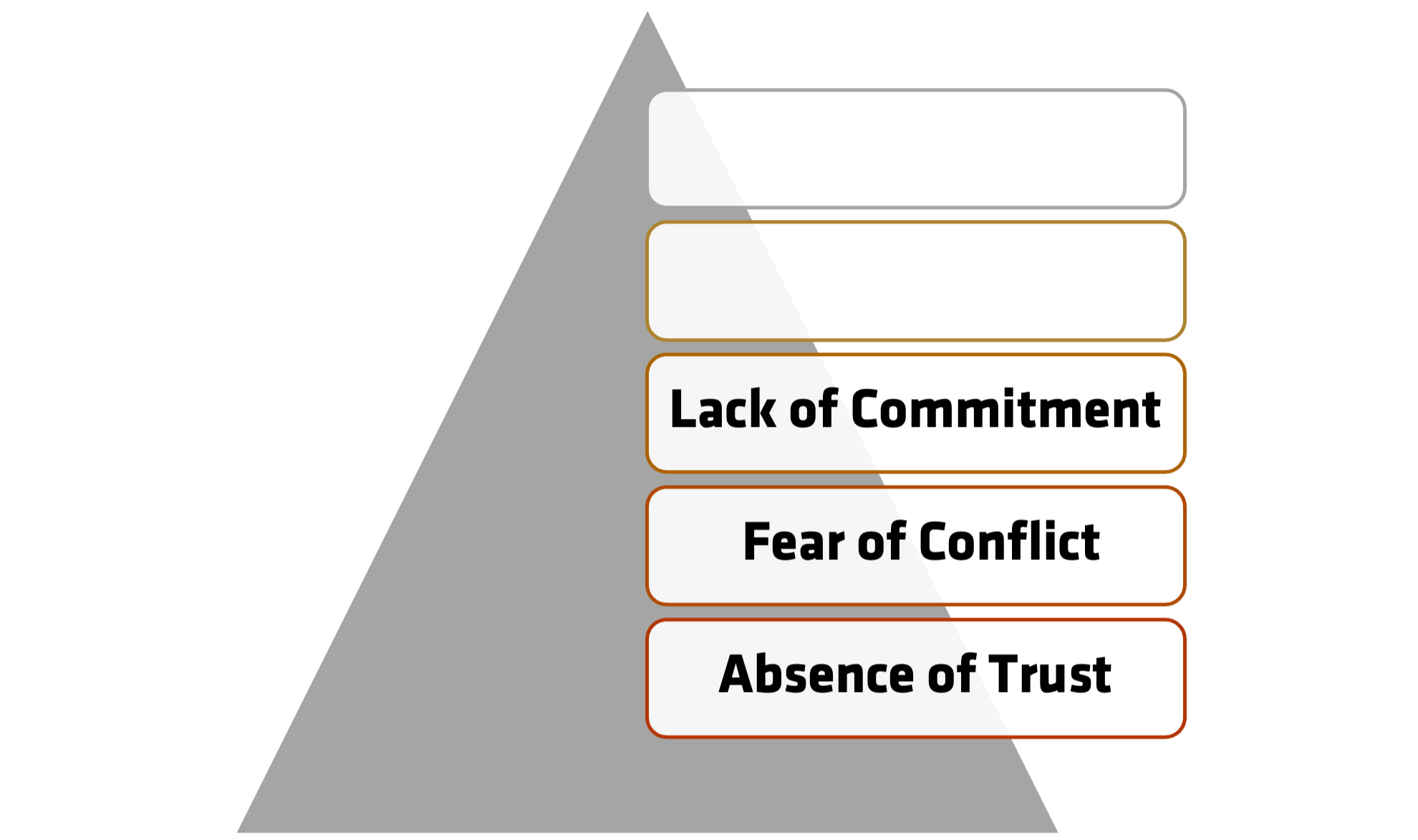This is my third blog of our Ultimate Team series, and I’m so excited to continue our discussion on creating high performing teams. All of Team PPMC has read one of my favorite management books, The Five Dysfunctions of a Team, by Patrick Lencioni, which provides a roadmap to creating a culture where not only the work thrives, but so do the people. Thank you for going on this journey with us.
The third dysfunction of any team is a “lack of commitment.” Let’s dive in.

Commitment to the team is different than commitment to the work. We all know people that are skilled workers, but not good team members. Commitment to the team is a shared responsibility for the work, reputation, and success of the team. The commitment comes back to the purpose of the work and holding each other accountable to high standards. This is NOT just the responsibility of a leader. Yes, the leader sets the expectations, but it takes the entire team to create accountability.
Here are some questions to consider:
- Do your teammates challenge or express concern when work of the organization does not go well? Do they ask “how can we do better” for the purpose of improvement, not to blame others?
- Does your team understand, support, and move forward the same priorities?
- Are key team members often missing or disengaged? Who is holding them accountable?
- Have you had a continued concern about team dynamics, but never addressed the situation?
If any of these are true, then you might have a commitment problem. You might have more individual players, instead of a team.
So how can we foster environments that breed commitment to purpose and not just individual success? Here are a few tips from Lencioni’s book:
- Ask your team: ensure that you’re giving the right team members an opportunity to discuss commitment to the purpose
- Focus on mutual clarity: make sure you understand what your team is suggesting, and make sure your team understands you
- Create closure: do not leave room for ambiguity
- Manage expectations: give very clear instructions on what you expect moving forward
- Manage employees: Address, inspire, or remove employees that are not committed the team or the purpose
What are you doing to keep folks committed?
Stay tuned into the PPMC newsletter and website for upcoming blogs in this series.
Several members of Team PPMC had the privilege of hearing Patrick Lencioni speak on his newest initiative, The 6 Types of Working Genius, at the Wichita Chamber Annual Meeting & Networking Gala last month.
Needless to say, we're excited to keep rolling on how to be better team members by understanding one another and having honest, open discussions.


 Several members of Team PPMC had the privilege of hearing Patrick Lencioni speak on
his newest initiative, The 6 Types of Working Genius, at the Wichita Chamber Annual
Meeting & Networking Gala last month.
Several members of Team PPMC had the privilege of hearing Patrick Lencioni speak on
his newest initiative, The 6 Types of Working Genius, at the Wichita Chamber Annual
Meeting & Networking Gala last month.